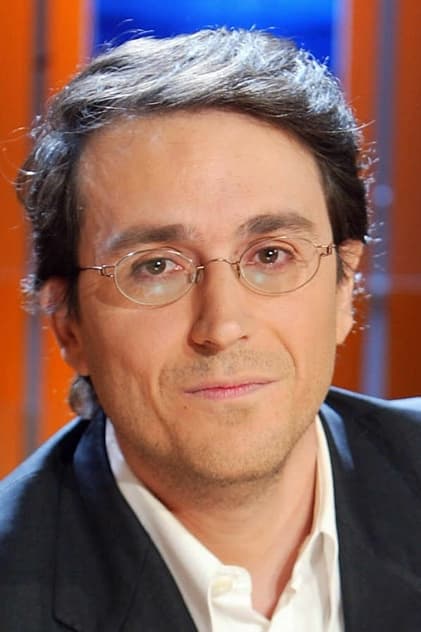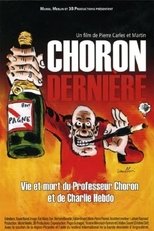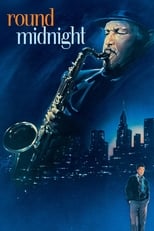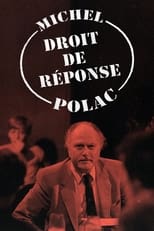

Marc-Edouard Nabe
Born: December 27, 1958
in Marseille, Bouches-du-Rhône, France
in Marseille, Bouches-du-Rhône, France
Marc-Édouard Nabe (born Alain Marc Édouard Zannini; 27 December 1958) is a French writer, painter and jazz guitarist.
After drawing cartoons for several publications including Hara-Kiri, Nabe published his first book Au régal des vermines in 1985 and caused controversy when he appeared on French television to promote it.
After having 27 books published by various French publishers, Nabe announced in 2010 that he was now self-publishing and invented the concept of 'anti-édition' ('anti-publishing'), which he described as self-publishing for an author who is already well-known. He was shortlisted for the 2010 Prix Renaudot for his novel L'Homme qui arrêta d'écrire, which became the first self-published book to be shortlisted for a major literary prize in France.
Nabe was born Alain Marc Édouard Zannini in Marseille. He is the only son of the Greek-Turkish-Italian jazz musician Marcel Zanini and Corsican mother Suzanne Zannini. His family moved to Boulogne-Billancourt in 1969. His father became successful with the radio hit Tu veux ou tu veux pas in 1970 and introduced him to many jazz musicians.
At 15 years old, Nabe went to visit the team of magazine Hara-Kiri and submitted his cartoons to cartoonists Georges Wolinski, Gébé and publishing director Professeur Choron. Some of his work was published, with Nabe taking a pen name by combining his middle names with a diminutive of 'nabot', a French pejorative word for short people that his schoolmates used to tease him with. In January 1975, one of Nabe's cartoons appeared on the front cover of newspaper Libération. In 1976, he played the rhythm guitar on one track of his father Marcel Zanini's record Blues and Bounce!, alongside drummer Sam Woodyard and organist Milt Buckner. The track's title, Nabe's Dream, became the title of the first volume of his diary, published in 1991.
Nabe met Hélène Hottiaux after his one-year national service in Charleville-Mezières in 1980. He extensively described their relationship in his diary as well as in the novel Alain Zannini. Their son, Alexandre Zannini, was born in 1990.
From 1982 onwards, Nabe wrote texts and articles for many publications, including Philippe Sollers's L'Infini and Jean-Edern Hallier's L'Idiot International. Many of these texts were collected in Oui and Non in 1998. ...
Source: Article "Marc-Édouard Nabe" from Wikipedia in English, licensed under CC-BY-SA 3.0.
After drawing cartoons for several publications including Hara-Kiri, Nabe published his first book Au régal des vermines in 1985 and caused controversy when he appeared on French television to promote it.
After having 27 books published by various French publishers, Nabe announced in 2010 that he was now self-publishing and invented the concept of 'anti-édition' ('anti-publishing'), which he described as self-publishing for an author who is already well-known. He was shortlisted for the 2010 Prix Renaudot for his novel L'Homme qui arrêta d'écrire, which became the first self-published book to be shortlisted for a major literary prize in France.
Nabe was born Alain Marc Édouard Zannini in Marseille. He is the only son of the Greek-Turkish-Italian jazz musician Marcel Zanini and Corsican mother Suzanne Zannini. His family moved to Boulogne-Billancourt in 1969. His father became successful with the radio hit Tu veux ou tu veux pas in 1970 and introduced him to many jazz musicians.
At 15 years old, Nabe went to visit the team of magazine Hara-Kiri and submitted his cartoons to cartoonists Georges Wolinski, Gébé and publishing director Professeur Choron. Some of his work was published, with Nabe taking a pen name by combining his middle names with a diminutive of 'nabot', a French pejorative word for short people that his schoolmates used to tease him with. In January 1975, one of Nabe's cartoons appeared on the front cover of newspaper Libération. In 1976, he played the rhythm guitar on one track of his father Marcel Zanini's record Blues and Bounce!, alongside drummer Sam Woodyard and organist Milt Buckner. The track's title, Nabe's Dream, became the title of the first volume of his diary, published in 1991.
Nabe met Hélène Hottiaux after his one-year national service in Charleville-Mezières in 1980. He extensively described their relationship in his diary as well as in the novel Alain Zannini. Their son, Alexandre Zannini, was born in 1990.
From 1982 onwards, Nabe wrote texts and articles for many publications, including Philippe Sollers's L'Infini and Jean-Edern Hallier's L'Idiot International. Many of these texts were collected in Oui and Non in 1998. ...
Source: Article "Marc-Édouard Nabe" from Wikipedia in English, licensed under CC-BY-SA 3.0.
Movies for Marc-Edouard Nabe...

Title: Choron dernière
Character: Self
Released: January 7, 2009
Type: Movie
Georges Bernier, alias Professor Choron, died January 10, 2005. He was 75 years old. The few death notices that appeared in the French press mainly focused on the scatological nature of his humor, or on the good man's provocative side. No one recalled the essential, which was that with his passing not only had one of the great proprietors of the French press disappeared, but he'd taken with him an artist in his own right, quite unique in his own way : Professor Choron.


Title: 'Round Midnight
Character: Extra
Released: January 9, 1986
Type: Movie
Inside the Blue Note nightclub one night in 1959 Paris, an aged, ailing jazzman coaxes an eloquent wail from his tenor sax. Outside, a young Parisian too broke to buy a glass of wine strains to hear those notes. Soon they will form a friendship that sparks a final burst of genius.


Title: Droit de Réponse
Character: Self
Released: December 12, 1981
Type: Movie
"Droit de Réponse" (Right of Reply) is a French debate program broadcast between December 12, 1981 and September 19, 1987 on the TF1 channel, presented by Michel Polac and produced by Maurice Dugowson. Broadcast live on a weekly basis, on Saturdays from 8.30 p.m., the right of reply has been the source of many controversies, due to the various speakers who have come to present their point of view on the show (which leads to famous scandals , remained in the memory of viewers), but also for the variety and relevance of the topics covered, which ensured the success of the program on the air for several years. On French television, this program is considered by some observers as a “pioneer program in terms of controversy-show or clash, in modern language”.


Title: Apostrophes
Character: Self
Released: January 10, 1975
Type: TV
Apostrophes was a live, weekly, literary, prime-time, talk show on French television created and hosted by Bernard Pivot. It ran for fifteen years (724 episodes) from January 10, 1975, to June 22, 1990, and was one of the most watched shows on French television (around 6 million regular viewers). It was broadcast on Friday nights on the channel France 2 (which was called "Antenne 2" from 1975 to 1992). The hourlong show was devoted to books, authors and literature. The format varied between one-on-one interviews with a single author and open discussions between four or five authors.
